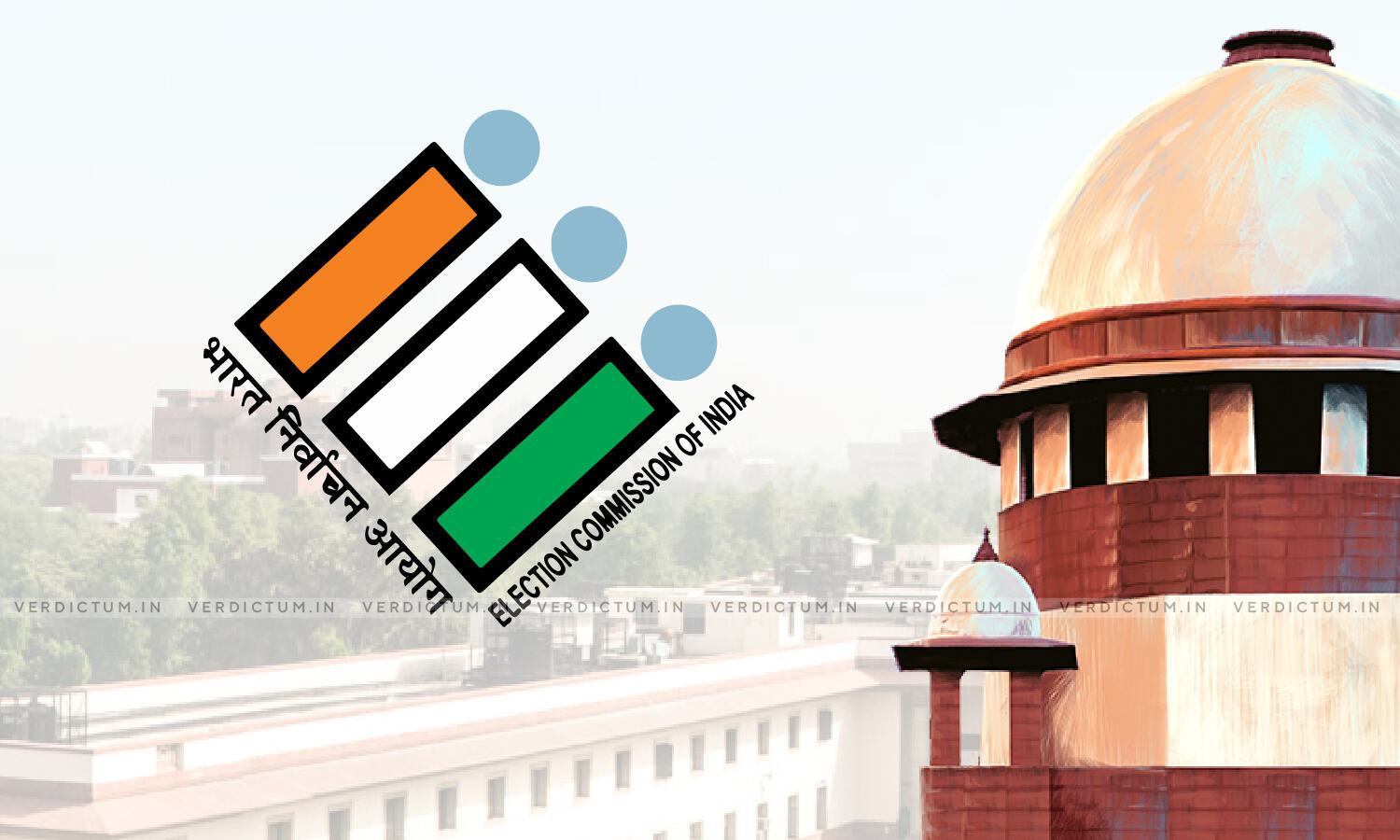
The Revision of Electoral Rolls
The Revision of Electoral Rolls – Procedures, Safeguards, and the Bihar Controversy
best online coaching for CLAT, online coaching for CLAT, CLAT Current Affairs 2026, Current Affairs 2026
Why in News:
A recent controversy in Bihar involving the deletion of over 63 lakh voter names has sparked intense debate over the Election Commission of India’s (ECI) revision powers, especially during intensive revision exercises. The criticism focuses on potential disenfranchisement of marginalized communities, and the demand for more transparent safeguards in the voter roll maintenance process.
As Bihar heads toward elections, the Special Summary Revision (SSR) conducted by the ECI has come under public and legal scrutiny, prompting questions about:
- The ECI’s constitutional mandate
- Voter registration/deletion procedures
- Data-driven interventions and their checks
This case offers significant insight into constitutional law, electoral procedure, and citizen rights—core areas of interest for CLAT 2026 and other law entrance exams.
Introduction:
The electoral roll is the backbone of democratic elections. A well-maintained voter list ensures universal adult suffrage, prevents electoral fraud, and builds citizen trust. In India, the Election Commission of India (ECI) is constitutionally tasked with maintaining and revising electoral rolls under Article 324.
But how does this process work? What is the legal basis? How do periodic and intensive revisions differ? And what happened in Bihar?
This write-up answers these questions while analyzing the broader legal, social, and political implications for students preparing for Current Affairs 2026.
Point-wise Summary of the Article:
- What is the Electoral Roll and Who Maintains It?
- The electoral roll is an official list of all eligible voters in a particular constituency.
- Maintained by the Election Commission of India (ECI) under Article 324.
- Governed procedurally by the Representation of the People Act, 1950, particularly Sections 15-25.
- Each State Election Office prepares its state’s roll but under central oversight from the ECI.
- Why Bihar is in the News
- Allegations emerged that ECI’s intensive revision drive led to deletion of approximately 63 lakh names in Bihar.
- Reports suggested that names were removed without adequate ground verification or notice.
- Political parties, especially the Congress and RJD, alleged targeting of Dalit, Mahadalit, and Muslim voters.
- ECI defended its action as a routine SSR (Special Summary Revision) exercise to eliminate duplicate and deceased voters.
- What are Revisions of Electoral Rolls?
- The ECI carries out two main types of revisions:
- Annual Summary Revisions (ASR) – routine updates, generally done in October-November.
- Intensive Revisions – more comprehensive, involving physical verification, house-to-house surveys, and deletion of bogus entries.
- Intensive revisions usually happen when significant demographic changes occur or prior to major elections.
- What is the Legal Framework?
- The power of the ECI comes from:
- Article 324 (Superintendence and control of elections)
- Section 21 of RPA, 1950: allows revision of electoral rolls by ECI at prescribed times.
- Section 22 and 23: allow inclusion or deletion of names based on residency, death, or disqualification.
- Section 25: empowers ECI to appoint Electoral Registration Officers (EROs) and Assistant EROs.
- What is the Procedure for Deletion of Names?
- Rule 21A of the Registration of Electors Rules, 1960 mandates:
- Proper inquiry before deletion.
- Notice must be issued to the voter.
- Voter must be given a reasonable opportunity to be heard.
- No deletion without physical verification or household verification.
- What is the Bihar Controversy?
- Allegations: The ECI deleted names of 63 lakh voters using AI-driven software tools without following proper inquiry procedures.
- Critics: Called it a violation of due process and a blow to democratic inclusion.
- ECI Response: Stated that only duplicate and non-existent entries were removed based on Aadhaar data and local verification.
- ECI’s Historical Experience with Intensive Revisions
- Previous intensive revisions were carried out during major elections:
- 1960, 1965, 1980, 1985, 1992, 1995, 2000.
- In 1993, a large-scale SSR was done before the Lok Sabha polls.
- After 2000, the ECI adopted a more digital approach, relying on data cleaning, inter-departmental databases, and GIS tools.
- Safeguards Introduced Over the Years
- Booth Level Officers (BLOs) are appointed to ensure proper door-to-door verification.
- Form 7: Used for objections to inclusion or for seeking deletion.
- Form 6: For new voter registration.
- Continuous updation is allowed up to 10 days before nomination filing in an election.
- Voter Helplines (1950), Mobile apps, and online voter portal have made the process more accessible.
- What the Law Says on Data Matching and AI Use
- Aadhaar linkage to voter ID is permissible only for de-duplication, not for deletion.
- The Puttaswamy Judgment (2017) on privacy sets limits on the use of AI and data matching tools in public governance.
- Use of data analytics must still adhere to principles of natural justice, especially in deletion cases.
Notes: Explanation of Key Terms
Term | Meaning |
Electoral Roll | Official list of voters eligible to vote in a constituency. |
Special Summary Revision (SSR) | A scheduled exercise by the ECI to update the voter list annually, especially for new voters. |
Electoral Registration Officer (ERO) | An official appointed to manage electoral roll-related tasks in a constituency. |
Form 6, 7, 8 | Forms used by voters to enroll, correct, or delete names on the electoral roll. |
Booth Level Officer (BLO) | Grassroot official who verifies voter details and assists with door-to-door verification. |
Constitutional and Legal Analysis:
- Article 326 – Universal Adult Suffrage
- Guarantees the right to vote to all citizens above 18.
- Errors in voter rolls violate the constitutional guarantee of inclusion.
- Article 324 – Powers of Election Commission
- Vests the ECI with full control over election conduct.
- However, this power is not absolute—it must conform to due process and fairness.
- Right to Vote: A Statutory Right
- The Supreme Court in PUCL v. Union of India held that the right to vote is statutory, but once exercised, it is protected under Article 19(1)(a).
Bihar Controversy as a Case Study:
- Raises questions of procedural transparency, data governance, and electoral integrity.
- Concerns of targeting specific communities (Dalits, Muslims) bring in constitutional equality principles.
- Calls for an independent audit of voter deletions and restoration of names if procedural violations are proved.
Comparative Global Practices
- In the US, the “motor voter” law allows automatic registration via driver’s license renewal.
- In Germany, voter registration is automatic via the national registry.
- In India, voter registration is still application-based, and revisions are periodically conducted rather than real-time updates.
Conclusion:
The revision of electoral rolls is a necessary and constitutional exercise to maintain electoral integrity. However, any such exercise must strictly adhere to due process, fair notice, and verification mechanisms to prevent voter disenfranchisement.
The Bihar case is a wake-up call for India’s electoral machinery. It highlights the need for:
- Stronger safeguards in digital data use.
- Independent scrutiny of deletion mechanisms.
- A move toward real-time, Aadhaar-independent and citizen-consent-based voter list updates.
This evolving area of law and policy offers critical insights into how electoral democracy in India is maintained—and must be protected.




